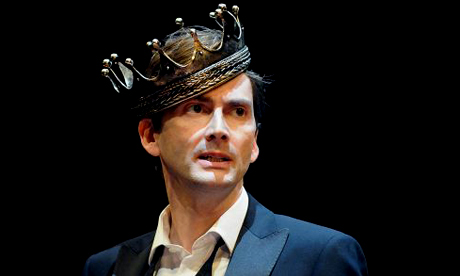 |
| William Shakespeare |
William Shakespeare is often considered to be the greatest playwright and one of the greatest writers in the history of the English language and the western arts. Something he isn't always given enough credit for is his comedic work. His plays were written mainly with the common people in mind and as such feature two prominent themes: sex and violence. Not unlike today, those were the two things that sold very well to the mainstream audience. Although the word “comedy” had a different meaning in Elizabethan times than it does now, there are similarities. Comedy back in those days was used to refer to a play with a happy ending. Shakespeare did however use jokes and creative insults in his plays, which can be compared to modern-day comedy.
Shakespeare's comedy had strong similarities with contemporary comedy and sitcoms. Some examples of recurring elements in his plays are: a focus on situation rather than character (such as in a sitcom), a clever servant (such as in Blackadder III) and use of every type of comedy, including slapstick, wit, puns, deadpan and practical jokes. This results in writing that is still hilarious today, despite Shakespeare having a reputation of being boring among especially the younger generations, which is evidently not deserved.
Shakespearean insults
A great source of comedy are the insults Shakespeare uses. He was generally very creative in his insults and went way beyond the occasional 'idiot' or 'moron' often seen in today's comedy. He does on occasion use maternal insults (the modern equivalent would be a 'Yo Mama-joke').
Demetrius: "Villain, what hast thou done?"
Aaron: "That which thou canst not undo."
Chiron: "Thou hast undone our mother."
Aaron: "Villain, I have done thy mother."
Aaron: "That which thou canst not undo."
Chiron: "Thou hast undone our mother."
Aaron: "Villain, I have done thy mother."
- Act IV, Scene II of Titus Andronicus
On occasion Shakespeare does comment on someone's intelligence, such as Menenius telling Brutus to shut up with the following sentence:
“God-den to your worships: more of your conversation would infect my brain, being the herdsmen of the beastly plebeians: I will be bold to take my leave of you.”
Shakespearean wit
 |
| Hamlet is full of hilarious wit |
Besides his creative insults, Shakespeare is also known for his great wit and word-play. Hamlet is full of witty remarks and banter by our hero, such as when Osric says “tis very hot”, as an excuse for not wearing his hat, Hamlet makes him say "It is indifferent cold, my lord, indeed," and the next moment again that "it is very sultry and hot."
This kind of witty banter makes Hamlet in particular an amazing read with unexpected comedy around every linguistic corner.
 |
| A Slap Stick |
Shakespearean slapstick
Although slapstick is often associated with early cinematic comedy, it is much older than that. Shakespeare incorporated slapstick into several of his plays, most notably in The Comedy of Errors where he used a lot of slapstick and mistaken identities for comedic effect. He ensured people would not feel sorry for the slapstick victims by focusing more on the situation, than the actual character, much like a sitcom does nowadays.
Shakespeare has left behind a legacy like no other writer. Even people who haven't read or seen any of his plays or who aren't interested in literature and theater usually have some idea who 'Will' was. His influence on comedy and writing in general is unprecedented and impossible to measure. If you haven't seen or read any of his work, go check it out, you will not be let down.
Trivia:
Shakespeare was credited in the Blackadder series on the BBC as “Additional dialogue by William Shakespeare”.
If you want to see a Shakespeare play, but quicker, look up the Reduced Shakespeare Company, who are able to cram all of Shakespeare's play in one evening show.

Geen opmerkingen:
Een reactie posten
Leave a message!